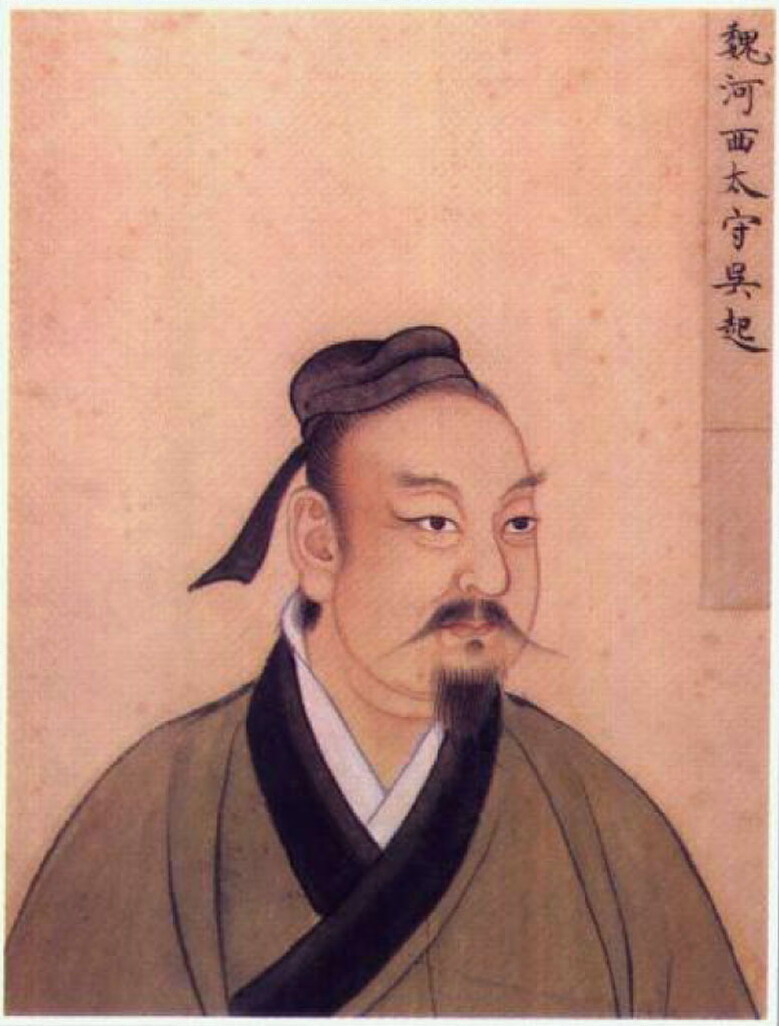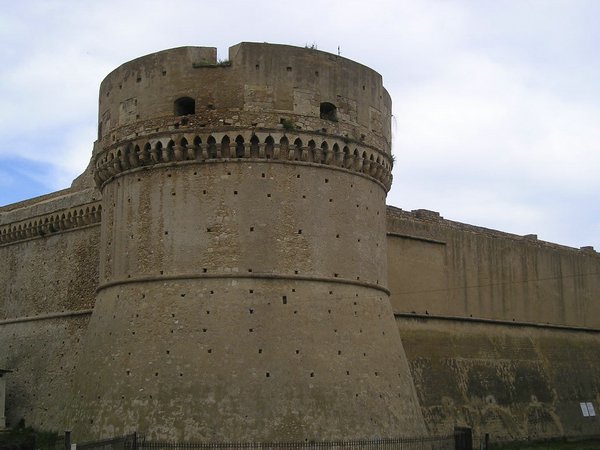|
389 BC
__NOTOC__ Year 389 BC was a year of the pre-Julian Roman calendar. At the time, it was known as the Year of the Tribunate of Poplicola, Capitolinus, Esquilinus, Mamercinus, Cornelius and Albinus (or, less frequently, year 365 ''Ab urbe condita''). The denomination 389 BC for this year has been used since the early medieval period, when the Anno Domini calendar era became the prevalent method in Europe for naming years. Events By place Greece * A Spartan expeditionary force under King Agesilaus II crosses the Gulf of Corinth to attack Acarnania, an ally of the anti-Spartan coalition. Agesilaus is eventually able to draw them into a pitched battle, in which the Acarnanians are routed. * The Athenian general, Thrasybulus, leads a force of triremes to levy tribute from cities around the Aegean and support Rhodes, where a democratic government is struggling against Sparta. On this campaign, Thrasybulus captures Byzantium, imposes a duty on ships passing through the Hellespon ... [...More Info...] [...Related Items...] OR: [Wikipedia] [Google] [Baidu] |
Aeschines Bust
Aeschines (; Ancient Greek, Greek: , ''Aischínēs''; 389314 BC) was a Ancient Greece, Greek politician, statesman and one of the ten Attic orators. Biography Although it is known he was born in Athens, the records regarding his parentage and early life are conflicting; but it seems probable that his parents, though poor, were respectable. Aeschines' father was Atrometus, an elementary school teacher of letters. His mother Glaukothea assisted in the religious rites of initiation for the poor. After assisting his father in his school, he tried his hand at acting with indifferent success, served with distinction in the army, and held several clerkships, amongst them the office of clerk to the ''Boule (ancient Greece), Boule.'' This references: *Rudolf Hirzel, ''Der Dialog''. i. 129–140 *Theodor Gomperz, ''Greek Thinkers'', vol. iii. p. 342 (Eng. trans. G. G. Berry, London, 1905) Among the campaigns that Aeschines participated in were Phlius in the Peloponnese (368 BC), Battle ... [...More Info...] [...Related Items...] OR: [Wikipedia] [Google] [Baidu] |
Aeschines
Aeschines (; Greek: , ''Aischínēs''; 389314 BC) was a Greek statesman and one of the ten Attic orators. Biography Although it is known he was born in Athens, the records regarding his parentage and early life are conflicting; but it seems probable that his parents, though poor, were respectable. Aeschines' father was Atrometus, an elementary school teacher of letters. His mother Glaukothea assisted in the religious rites of initiation for the poor. After assisting his father in his school, he tried his hand at acting with indifferent success, served with distinction in the army, and held several clerkships, amongst them the office of clerk to the '' Boule.'' This references: * Rudolf Hirzel, ''Der Dialog''. i. 129–140 *Theodor Gomperz, ''Greek Thinkers'', vol. iii. p. 342 (Eng. trans. G. G. Berry, London, 1905) Among the campaigns that Aeschines participated in were Phlius in the Peloponnese (368 BC), Battle of Mantinea (362 BC), and Phokion's campaign in Euboea (349 BC) ... [...More Info...] [...Related Items...] OR: [Wikipedia] [Google] [Baidu] |
Zuo Qiuming
Zuo Qiuming, Zuoqiu Ming or Qiu Ming (556–451 BCEZhou, Jixu (May 2011"Confucius and Lao Zi" Their Differing Social Foundations and Cultures ''Sino-Platonic Papers'' 211. p. 2 or 502 – 422 BCE) was a Chinese historian who was a contemporary of Confucius that lived in the State of Lu during the Spring and Autumn period of ancient China. He is a historian, litterateur, thinker, essayist and worked as a historical official of Lu. The influential historical narrative '' Zuozhuan'' ("Commentary of Zuo") is traditionally attributed to him; as well as '' Guoyu'' ("Discourses of the States"). One tradition, according to the ''Records of the Grand Historian'', holds that he was blind.Sima Qian, ''Shiji''"Grand Historian's Autobiographical Postface" quote: "左丘失明,厥有國語" In the ''Analects'', Confucius complimented Zuo Qiu Ming's moral stance and conducts; he also received praises for his academic contributions. Ideology The basic philosophical outlook of Zuo Z ... [...More Info...] [...Related Items...] OR: [Wikipedia] [Google] [Baidu] |
381 BC
__NOTOC__ Year 381 BC was a year of the pre-Julian Roman calendar. At the time, it was known as the Year of the Tribunate of Camillus, Albinus, Albinus, Medullinus, Flavus and Ambustus (or, less frequently, year 373 '' Ab urbe condita''). The denomination 381 BC for this year has been used since the early medieval period, when the Anno Domini calendar era became the prevalent method in Europe for naming years. Events By place Persian Empire * The Persian generals Tiribazus and Orontes invade Cyprus, with an army far larger than any King Evagoras of Cyprus could raise. However, Evagoras manages to cut off this force from being resupplied, and the starving troops rebel. However, the war then turns in the Persians' favour when Evagoras' fleet is destroyed at the Battle of Citium (Larnaca, Cyprus). Evagoras flees to Salamis, where he manages to conclude a peace which allows him to remain nominally king of Salamis, though in reality he is a vassal of the Persian king. Gre ... [...More Info...] [...Related Items...] OR: [Wikipedia] [Google] [Baidu] |
State Of Chu
Chu, or Ch'u in Wade–Giles romanization, (, Hanyu Pinyin: Chǔ, Old Chinese: ''*s-r̥aʔ'') was a Zhou dynasty vassal state. Their first ruler was King Wu of Chu in the early 8th century BCE. Chu was located in the south of the Zhou heartland and lasted during the Spring and Autumn period. At the end of the Warring States period it was destroyed by the Qin in 223 BCE during the Qin's wars of unification. Also known as Jing () and Jingchu (), Chu included most of the present-day provinces of Hubei and Hunan, along with parts of Chongqing, Guizhou, Henan, Anhui, Jiangxi, Jiangsu, Zhejiang, and Shanghai. For more than 400 years, the Chu capital Danyang was located at the junction of the Dan and Xi Rivers near present-day Xichuan County, Henan, but later moved to Ying. The house of Chu originally bore the clan name Nai ( OC: /*rneːlʔ/) which was later written as Mi ( OC: /*meʔ/). They also bore the lineage name Yan ( OC: /*qlamʔ/, /*qʰɯːm/) which would later be w ... [...More Info...] [...Related Items...] OR: [Wikipedia] [Google] [Baidu] |
Prime Minister
A prime minister, premier or chief of cabinet is the head of the cabinet and the leader of the ministers in the executive branch of government, often in a parliamentary or semi-presidential system. Under those systems, a prime minister is not the head of state, but rather the head of government, serving under either a monarch in a democratic constitutional monarchy or under a president in a republican form of government. In parliamentary systems fashioned after the Westminster system, the prime minister is the presiding and actual head of government and head/owner of the executive power. In such systems, the head of state or their official representative (e.g., monarch, president, governor-general) usually holds a largely ceremonial position, although often with reserve powers. Under some presidential systems, such as South Korea and Peru, the prime minister is the leader or most senior member of the cabinet, not the head of government. In many systems, the prime minister ... [...More Info...] [...Related Items...] OR: [Wikipedia] [Google] [Baidu] |
Wu Qi
Wu Qi (, 440–381 BC) was a Chinese Chinese can refer to: * Something related to China * Chinese people, people of Chinese nationality, citizenship, and/or ethnicity **''Zhonghua minzu'', the supra-ethnic concept of the Chinese nation ** List of ethnic groups in China, people of ... military leader, Legalist philosopher, and politician in the Warring States period. Biography Born in the Wey (state), State of Wey (), he was skilled in leading armies and military strategy. He had served in the states of Lu (state), Lu and Wei (state), Wei (魏, not to be confused with Wèi, currently spelled as Wey as in previous note). In the state of Wei he commanded many great battles and was appointed Xihe Shou (Mayor of Xihe county). Xihe was the area between the Yellow and Luo River (Shaanxi), Luo Rivers that Wei had just taken from Qin (state), Qin. Later, after he became estranged from the lord of Wei and was forced into exile, Wu Qi went to the Chu (state), State of Chu where he was ... [...More Info...] [...Related Items...] OR: [Wikipedia] [Google] [Baidu] |
Dionysius I Of Syracuse
Dionysius I or Dionysius the Elder ( 432 – 367 BC) was a Greek tyrant of Syracuse, in Sicily. He conquered several cities in Sicily and southern Italy, opposed Carthage's influence in Sicily and made Syracuse the most powerful of the Western Greek colonies. He was regarded by the ancients as an example of the worst kind of despot—cruel, suspicious and vindictive. Endnotes: * Diod. Sic. xiii., xiv., xv. *J. Bass, ''Dionysius I. von Syrakus'' (Vienna, 1881), with full references to authorities in footnotes Early life of Dionysius the Elder Dionysius began his working life as a clerk in a public office. Because of his achievements in the war against Carthage that began in 409 BC, he was elected supreme military commander in 406 BC. In the following year he seized total power and became tyrant. He was married to Aristomache, and had a daughter by her, Arete. He was married at the same time to Doris of Locris, who bore him his son, Dionysius II of Syracuse. Rise to power Dionysiu ... [...More Info...] [...Related Items...] OR: [Wikipedia] [Google] [Baidu] |
Crotone
Crotone (, ; nap, label= Crotonese, Cutrone or ) is a city and ''comune'' in Calabria, Italy. Founded as the Achaean colony of Kroton ( grc, Κρότων or ; la, Crotona) in Magna Graecia, it was known as Cotrone from the Middle Ages until 1928, when its name was changed to the current one. In 1992, it became the capital of the newly established Province of Crotone. , its population was about 65,000. History Croton's ''oikistes'' (founder) was Myscellus, who came from the city of Rhypes in Achaea in the northern Peloponnese. He established the city in c. 710 BC and it soon became one of the most flourishing cities of Magna Graecia with a population between 50,000 and 80,000 around 500 BC. Its inhabitants were famous for their physical strength and for the simple sobriety of their lives. From 588 BC onwards, Croton produced many generations of winners in the Olympics and the other Panhellenic Games, the most famous of whom was Milo of Croton. According to Herodotus (3.131), ... [...More Info...] [...Related Items...] OR: [Wikipedia] [Google] [Baidu] |
Battle Of The Elleporus
The Battle of the Elleporus was fought in 389 BC between the forces of Dionysius I of Syracuse and the armies of the Italiote League. The armies of Syracuse triumphed, and Dionysius' control was extended into Southern Italy. After arriving in Italy, with a force of 20,000 men, 3000 horses, and a fleet of 40 galleys, Dionysius decided to lay siege to Caulonia, a city belonging to Locri. To force Dionysius into relaxing his siege, Heloris decided to leave his camp and marched north towards Eleporus with his army numbering 25,000 infantry and 2,000 cavalrymen mostly composed of other Syracusan exiles, Dionysius then lifted the siege and decided to march his army to Eleporus away from the enemy. The two armies were ignorant of each other's whereabouts until Dionysius acquired intelligence about Heloris's whereabouts from one of his scouts. Exploiting the advantage he ordered his forces to surprise attack the enemy at the dawn. Dionysius used his overwhelming numerical superiori ... [...More Info...] [...Related Items...] OR: [Wikipedia] [Google] [Baidu] |

_-_BEIC_6353776.jpg)




